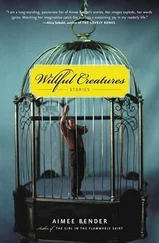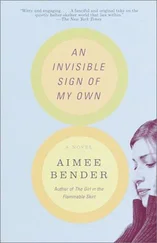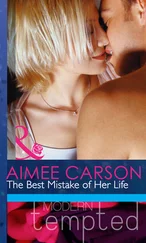It was Wednesday, and George always came over on Wednesdays after school. He was Joseph’s best and only friend. George Malcolm: half white, half black, with messy tousled hair, rumpled and tugged between kind of curly and extremely curly. Once, a year or so before, he’d been at our house and he’d pulled out a lock of his hair and used it to teach me about eddies and helixes. It’s a circular current into a central station, he’d explained, giving me one to hold. I pulled on the spring. Nature is full of the same shapes, he said, taking me to the bathroom sink and spinning on the tap and pointing out the way the water swirled down the drain. Taking me to the bookshelf and flipping open a book on weather and showing me a cyclone. Then a spiral galaxy. Pulling me back to the bathroom sink, to my glass jar of collected seashells, and pointing out the same curl in a miniature conch. See? he said, holding the seashell up to his hair. Yes! I clapped. His eyes were warm with teaching pleasure. It’s galactic hair, he said, smiling.
At school, George was legendary already. He was so natural at physics that one afternoon the eighth-grade science teacher had asked him to do a preview of the basics of relativity, really fast, for the class. George had stood up and done such a fine job, using a paperweight and a yardstick and the standard-issue school clock, that the teacher had pulled a twenty-dollar bill from his wallet. I’d like to be the first person to pay you for your clarity of mind, the teacher had said. George used the cash to order pizza for the class. Double pepperoni, he told me later, when I’d asked.
That afternoon, we all got off the bus at Fairfax and Melrose and I followed the two of them home, wilted, trailed by the greasy salty smell of pastrami burritos at Oki Dog, and when George turned around to show something about the direction of an airplane, he saw me tripping along behind and waved.
Hey, Rose! he said. How’s it going?
Hi, I said. Hot, I said.
Joseph kept walking in his faded blue T-shirt, his back to me.
You’ve been walking behind us all this time? George asked.
I nodded. He kept walking backwards, as if he was waiting for something, so I raised my hand.
George laughed. Yes? he said. Miss Edelstein?
Have you ever been to the school nurse?
No, he said.
Don’t bother, I said.
Okay, he said. He looked a little bored.
He started turning back, so I waved my hand again.
Wait, I said. Sorry. I have a real question, I said. A science question.
Now my brother glanced around. Irritated.
Hey, he said. We’re busy. We don’t want to talk about fireflies.
What if, I said, food tastes funny?
Have you tried those cafeteria burritos? asked George, still walking backwards, tapping his pencil on his head like it was a drum. I had one of those today, he said. Now that was hilarious.
Don’t you have flute? Joseph asked, throwing his words back.
On Mondays, I said. Most food.
Or Eliza? said Joe.
Ballet, I said.
What do you mean? George asked.
What should I do?
I don’t get it, said George.
I think there’s something wrong with me, I said, voice cracking.
George squinted, confused. Both he and Joe were weird-looking in junior high; their features kept growing at different speeds and falling out of proportion and at that point George’s eyebrows were so high and peaked on his forehead that he always looked either skeptical or surprised.
We reached the door to the house and Joseph dug around in his backpack to find his keychain. He was in charge of Wednesday afternoons and he had a new keychain he’d bought with his allowance-a solid silver circle with a clever latch that sank into the stream of the circle invisibly. He found it, let us in, and then attached the circle to his belt loop, like a plumber.
He turned down the hall to head straight to his room, but George lingered in the entryway.
You play flute? he said.
Just a little, I said.
Hey, George, Joseph said, heaving his textbook from his backpack and flipping it open. Race you on twelve. A speedboat full of villains is leaving a twenty-foot-high pier at a steady fifteen mph. A car full of cops is about to drive off the pier to catch the villains. How fast should the car be going to land on the boat, if the car leaves the pier when the boat is thirty-five feet away?
But George crossed his arms, the way he did sometimes when he was in and out of Joseph’s room, pacing. They’d copy extra physics questions from the library and settle in for the afternoon-Joseph at his desk, George pacing. They’d prop open the side door for fresh air and flick twigs and hammer through the extra credit that the teacher put up for them, that even the teacher didn’t really know.
He fixed his eyes on me. Brown and sharp.
What’s so wrong with you? he said.
I flushed. I went through what I’d told the nurse. George stayed in the hallway to listen but Joseph ducked inside his room, tossing the textbook on his bed and sitting down at his desk, where he lifted a piece of graph paper and a compass from his folder. As I talked, he placed the steel point of the compass on the graph paper, strapped in the pencil and started to draw, with his careful hands, a beautiful arc. Every action so assured, like he knew exactly what mystery of the universe he was about to puncture.
So is it like Swiss cheese? George asked when I was done.
No, I said. It’s one big hole. The nurse said I had an active imagination.
Joseph crumpled up his perfect arc and pulled out a fresh piece of graph paper.
Don’t crumple, Joe, said George.
I fucked it up, said Joseph, tossing it into the trash.
I have that plan for my bedroom, remember? George said. All mistakes wallpaper, he said, turning back to me. Anyway, he said, let’s test you. We have to have a snack anyway.
Now? said Joseph, stretching the compass again and placing the point at the intersecting corner of two blue graph squares.
Just for a few minutes, said George. You free? he said, looking at me.
I’m free, I said.
He clapped his hands. First item on the agenda: discover what is going on with Rose, he said.
Joseph opened his mouth to protest.
Second item, George said, get to work!
I bowed, a little. What a lift, whenever he said my name. It was like getting my number called out in a raffle.
Joseph nearly crumpled his page again, then stopped his fist and handed it over. George held it up to the light, admiring the curves as if it were a painting. North wall, he said, nodding. Perfect.

That afternoon involved four sandwiches, soda, chips, buttered toast, chocolate milk. I ate my way through the refrigerator. Mom was still away at her new job, at the woodworking studio near Micheltorena, off Sunset into the hills, and my brother and George poured sugar and jam over toast and talked about their favorite TV series with the robots while I bit and chewed and reported to George. He’d found a yellow legal pad by the phone which he held on his lap, with a list of foods in the left column and then all my responses on the right. Half hollow, I said, about my mom’s leftover tuna casserole. Awful! I said, swallowing a mouthful of my father’s butterscotch pudding from a mix, left in a bowl. Dad’s, so distracted and ziggy I could hardly locate a taste at all. The sensor did not seem to be restricted to my mother’s food, and there was so much to sort through, a torrent of information, but with George there, sitting in the fading warmth of the filtered afternoon springtime sun spilling through the kitchen windows, making me buttered toast which I ate happily, light and good with his concentration and gentle focus, I could begin to think about the layers. The bread distributor, the bread factory, the wheat, the farmer. The butter, which had a dreary tang to it. When I checked the package, I read that it came from a big farm in Wisconsin. The cream held a thinness, a kind of metallic bumper aftertaste. The milk-weary. All of those parts distant, crowded, like the far-off sound of an airplane, or a car parking, all hovering in the background, foregrounded by the state of the maker of the food.
Читать дальше













